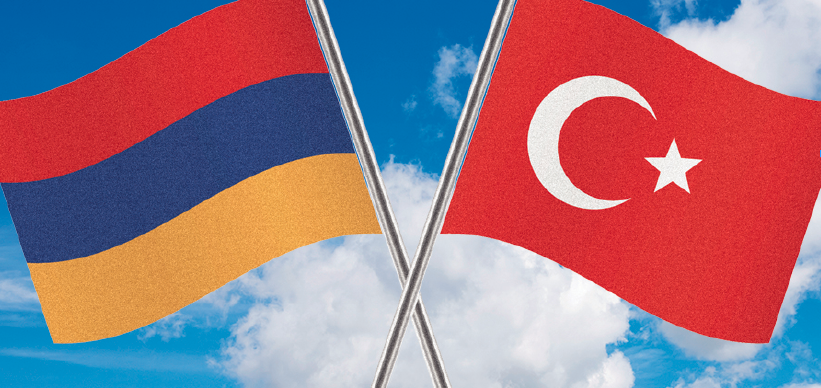By Melissa Wuske
Turkish and Armenian Christians Seek Reconciliation
A shocking scene at the Armenian Genocide Memorial in Yerevan marked the hundredth anniversary of the massacre—Turkish and Armenian Christians were joining hands and praying for reconciliation.
In 1915 the Ottoman Empire systematically killed an estimated 800,000 to 1.5 million Armenians. In the century since the massacre, pain and animosity has festered between Turks and Armenians. “You can hardly find an Armenian whose relatives were not victims of the genocide. For this very reason, Armenians live with hatred and bitterness in their hearts,” said an Armenian church leader.
While political efforts at reconciliation have largely failed, “Church leaders of both peoples are seeing that we must take the steps of following Jesus, in humility and forgiveness, to see reconciliation and overcome this century of pain,” a Turkish church leader said. Turkish Christians are leading the way: “We have come here to apologize for what our ancestors did, to ask for your forgiveness,” the spokespeople for the Turkish Christians said at the memorial.
While reconciliation is a slow process, the efforts of the Turks are already changing this tense relationship. “Until now,” one Armenian evangelical said, “we forgave with our mouths but not with our hearts.”
Teens Take on Hackers
There’s a surprising group on the front lines of cyber security: a group of high school students in Huntsville, Alabama. They’re taking a cyber security class at school, and their team won the Air Force Association’s National Cyber Patriot Competition.
“Cyber warfare is really attractive to other countries because it’s affordable and allows them to strike at other countries and whatever political interests they don’t like with relative impunity, and cause damage without having it traced back to them,” senior James Brahm said.
“It’s really easy to attack, but it’s very difficult to defend,” said Matthew Rogers, another student. “Which is why teaching cyber security’s very important.”
And their skills are in demand: “Some of us work at a local engineering firm,” said Brahm. “And we’re developing an experimental form of malware detection.”
Where Did the Bacteria Go?
Studies show that the average American’s digestive tract contains far fewer bacteria—in total number and kinds of bacteria—than ancient people and indigenous tribes. This lack of bacteria affects the ability to metabolize certain types of foods and also affects immune responses. But what’s caused the decrease? Two studies point to possible answers.
Microbiologist M. Gloria Dominguez-Bello at the New York University School of Medicine studied the Yanomami tribe at the border of Venezuela and Brazil. Dominguez-Bello suspects the tribe’s lack of antibiotic use may be the difference: “Antibiotics kill bacteria in the gut, and sometimes species don’t come back.”
Jens Walter, a microbiologist at the University of Alberta, studied two indigenous populations in Papua New Guinea who do use antibiotics. Walters suggests that the tribes’ lack of clean water may aid the spread of helpful bacteria. “Clean drinking water is one of the most important achievements of Western culture,” Walter says. “It prevents the spread of infections, but it also prevents the easy exchange of our microbiomes.”
Emoji Around the World
SwiftKey gathered data on worldwide emoji use. (Emoji are images used in electronic communication to convey ideas and emotions.) Happy faces are the most popular emoji in nearly all nations. The French use heart emoji four times more than average, while Arabic speakers use flowers and plants four times more than average. Canadians use the poop emoji more than any other nation.
Melissa Wuske is a freelance editor and writer. She and her husband, Shawn, live and minister in Jamaica Plain, Massachusetts. Find her work online (melissaannewuske.com).



Comments: no replies